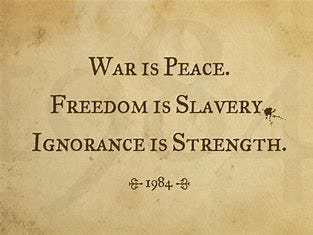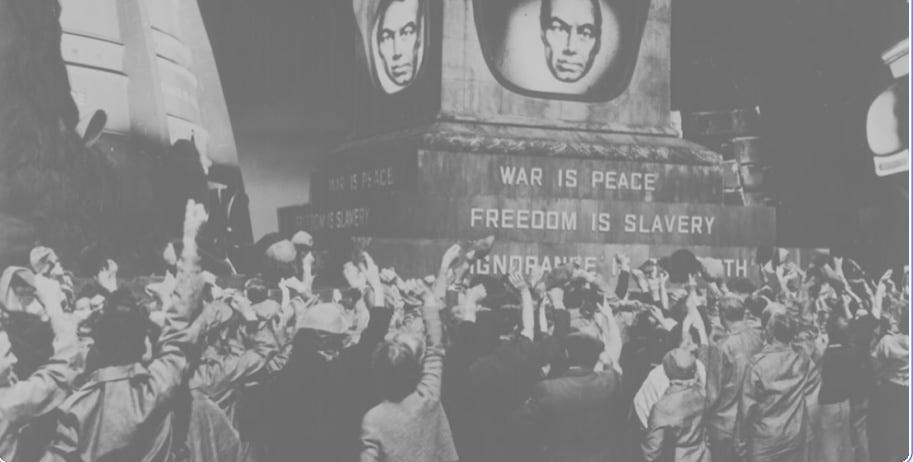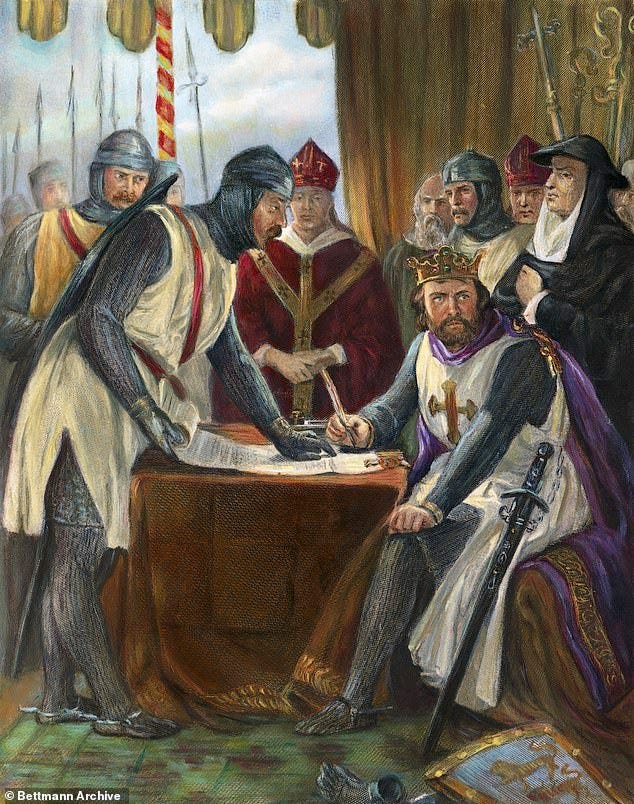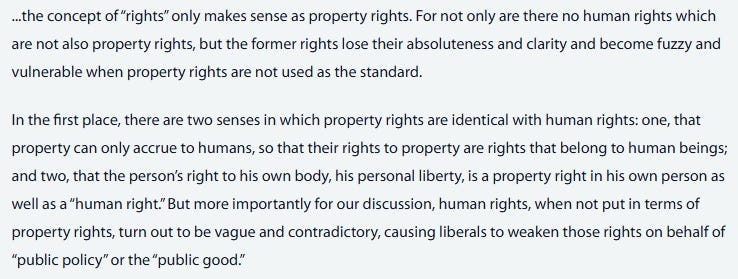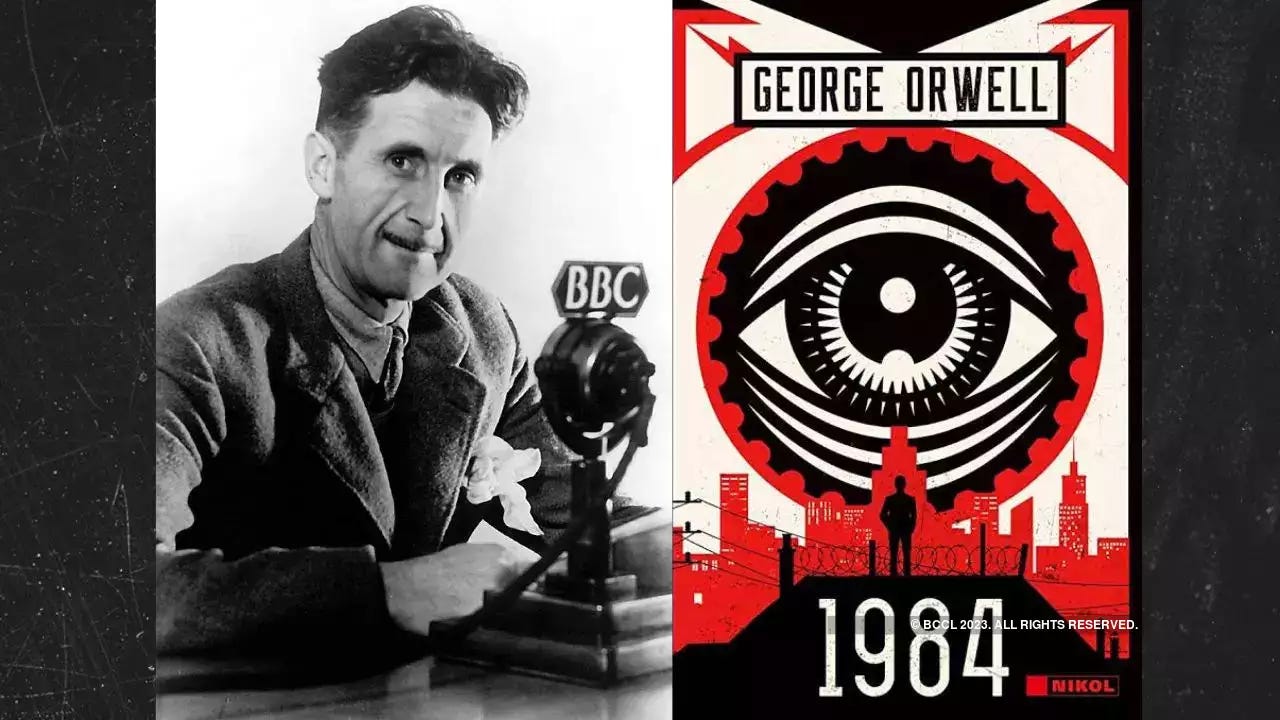The Ruling Elites Create an Orwellian Reinterpretation of Human Rights
Through Orwellian Newspeak, ordinary words like “liberty,” “justice,” and “equality”—values that most people would support—have been subverted and harnessed to promote socialism.
September 18, 2024
Ludwig von Mises depicts the aim of revolutionary socialism as: “to clear the ground for building up a new civilization by liquidating the old one.”
One of the main strategies in liquidating a civilization involves dismantling its legal and philosophical foundations.
This role is fulfilled by activists who embark upon “sabotage and revolution” by subverting the meaning of words:
“The socialists have engineered a semantic revolution in converting the meaning of terms into their opposite.”
George Orwell famously called this subversive language “Newspeak.”
Peter Foster describes Newspeak as “a sort of totalitarian Esperanto that sought gradually to diminish the range of what was thinkable by eliminating, contracting, and manufacturing words.”
Mises explains that dictators express their ideas in Newspeak precisely because, if they did not, nobody would support their schemes:
In the proliferation of Newspeak, the reinterpretation of “human rights” has proved to be one of the most powerful weapons of sabotage and revolution.
Activists have seized control of a vast empire of international law, NGOs, and human rights charities with a global network of staff who monitor respect for “human rights.”
They wield their significant influence in the human rights industry to undermine human liberty by redefining the meaning of “human rights” to denote the antidiscrimination principle.
Under the banner of equality and nondiscrimination, they restrict free speech and other human liberties.
In other words, the doctrine of “human rights” now denotes the precise opposite: the destruction of human liberty.
The “human right” to non-discrimination
Human rights no longer mean what many might suppose: the right to life, liberty, and property.
The vast corpus of human rights in international law has been categorized by Karel Vašák into three: civil-political, socio-economic, and collective-developmental.
These categories are said to encompass negative rights (things the state must not do, such interfering with life, liberty, or property), positive rights (things the state must do, for example, provide citizens with food, shelter, education, healthcare, etc.), and rights of solidarity between citizens such as wealth redistribution through social welfare schemes and equal participation in economic progress through measures such as the minimum wage or equal pay.
Human rights organizations monitor progress against these categories and ensure that the legal system works in favor of socialist goals and against liberty.
For example, the United Nations human rights program educates the public on the need to eradicate “hate speech” and interprets “equal protection” of the law, as a fundamental human right, to mean protection from hate speech. The UN says:
From that description, it can be seen that the UN takes a concept which is well-established in the criminal law, namely, prohibiting incitement to violence, and links it to notions of incitement to discrimination and incitement to hostility, which have never before been recognized as crimes.
They annex discrimination and hostility to the charge of inciting violence because, if they did not, it would be immediately clear to everyone that criminalizing “discrimination” or “hostility” amounts to nothing less than Newspeakian crimethink.
The meaning of human rights
In his article, “There’s no such thing as Human Rights,” the British journalist Peter Hitchens argues that,
There's no such thing as Human Rights: Shocking? Yes. Provocative? Certainly. But read this powerfully perceptive argument from PETER HITCHENS, and you'll see why he believes they're not worth the paper they're written on
PETER HITCHENS: 'Let us get rid of these useless human rights, which protect us from nothing and give power to those who have not earned it'
In that context, Hitchens is referring not to the ancient liberties protected by Magna Carta, but to the Newspeakian rights now enshrined in human rights instruments, such as the UN Declaration of Human Rights and the European Convention on Human Rights.
King John is shown signing the Magna Carta (1215). Undated illustration, after a painting by Chappel
Human rights have been transformed into wooly concepts which merely reflect political and partisan demands.
Murray Rothbard avoids the ambiguity surrounding the meaning of human rights by defining them as property rights.
In the Ethics of Liberty, he explains:
Thus, the Rothbardian interpretation of human rights denotes the universal right to self-ownership and private property that vests in all human beings.
Bureaucratic reinterpretation
In practice, the meaning of human rights is subject to interpretation by courts or other law enforcement officials.
Therefore, human rights ultimately mean only what they are interpreted to mean by law enforcement, not what they may theoretically, politically, or philosophically.
Lowell B. Mason, an attorney and former chair of the Federal Trade Commission explains the significance of bureaucratic interpretation by observing wryly that:
Being well aware of this, the goal of activists is to ensure that “human rights” are interpreted so as to advance their goals. This explains the concerted efforts to depict “hate speech” as a human rights violation.
In this way the commitment of states to protecting “human rights” is transformed, through the prism of the antidiscrimination principle, into an edict to prohibit hate speech.
The word “hate” is interpreted to mean having the temerity to disagree with socialists, and similarly, the word “equality” is interpreted to mean wealth redistribution to achieve equality of material conditions.
Mason explains how it is possible for bureaucrats, charged with law enforcement, to reinterpret the Constitution to suit whatever they think the law ought to achieve.
No matter how carefully a law is drafted, it will always require interpretation, and this is where the bureaucrats strike as they purport to apply the “evolving” meaning of the Constitution.
Mason explains:
Through Newspeak, the Constitution itself has been reinterpreted, enabling socialists to claim that they support free speech and also support the prohibition of “hate speech.”
Mises explains that this subverts the concept of freedom into its very opposite:
“Freedom implies the right to choose between assent and dissent. But in Newspeak it means the duty to assent unconditionally and strict interdiction of dissent.”
In that sense, the concept of “hate speech” is not compatible with free speech.
In denoting any dissent as “hate,” it is the very negation of free speech and freedom of thought.
Through Orwellian Newspeak, ordinary words like “liberty,” “justice,” and “equality”—values that most people would support—have been subverted and harnessed to promote socialism.
READ MORE: DHS to Restart Disinformation Governance Board
Share or comment on this article.
Your support is crucial in exposing fake news and in helping us defeat mass censorship.





